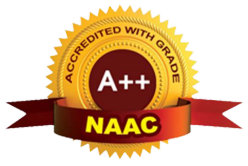Globally it is projected that two-third of mankind will live in the urban areas by 2025. India is 2nd largest urban system in the world with more than 30 percent of urban population. It is expected that by 2025, half of the India’s population will be urbane. The excessive urbanization has created manifold problems such as transportation, poverty, unemployment, unauthorized housing colonies, slums and squatter settlements. One of the estimation shows that at least 33 percent of the Indian urban population lives in slums with related implications to development. Thus, urbanization will be a problem before the urban planners and policy makers in the years to come. Therefore, proper planning and management of urban development programmes hold the key for the planners and policy makers today. The criticality of the urban problems has not been properly understood due to less emphasis on urban development issues in the academic curriculum at the graduation and post-graduation levels. Therefore, MAUS will be useful for the people involved in the urban development programmes and also to the graduates who wish to pursue urban development as a career.
Objectives
- To provide opportunity to the learners to deepen their knowledge and understanding of urban planning and development.
- To impart education on urban ecology, sustainable and smart cities and urban waste management with focus on enhanced knowledge.
- To expand capacities of the working urban development professionals and elected representatives of urban local bodies on various theoretical and practical aspects of urban planning and development.
- To develop professional knowledge and skills in formulation, implementation, monitoring and evaluation of urban development projects and programmes.
Programme Offer and Coverage
MAUS will be offered in both January and July sessions of every year. It is offered throughout the country through the established network of IGNOU Regional Centres.
The instructional system MAUS also follows multi-media approach i.e. self-instructional print material, audio-video programmes, assignments, face-to-face counseling sessions / contact sessions, optional project work, teleconferencing and interactive radio counseling, among others.
Self-instructional Print Material
The print material is written in self-instructional style. It is in the form of blocks (booklets) specially prepared for theory courses and project work of the programme. Each course has a specific code number assigned to it. They are supplied to each learner along with a set of assignment questions. The learner has to complete the required assignments related to each course. Each course may have 4-5 blocks and each block may have 3-5 units. The printed material for project work is available in the form one booklet with all guidelines.
Audio-video Programmes
The learning package also contains audio-video programmes which are produced by the University for supplementing and enhancement of understanding of the course material given to the student. These programmes are normally of 25-30 minutes duration. These are used at the Study Centres during counseling sessions which are duly scheduled and notified by the Programme In-charge/Co-ordinator of Study Centre for the benefit of the students. The video programmes are also telecast on Gyan Darshan, National Network and enrichment channel of Doordarshan. Similarly, the audio programmes when produced are also broadcast by Gyan Vani and selected stations of All India Radio. Learners can contact Study Centres for further information.
Assignments
Assignments are an integral and compulsory component of the instructional system. There is one tutor-marked assignment for each theory course. Students will have to work on these assignments. Each student should submit the assignment responses to the Coordinator/Programme In-charge of the Study Centre in accordance with the given assignments’ submission schedule. Students can download the assignments from IGNOU website (www.ignou.ac.in) at student’s zone or at SOEDS webpage.
Counseling Sessions
Counseling sessions are held at the Study Centres as per the schedule drawn and notified by the Coordinator/Programme In-charge of the concerned Centre.
Teleconferencing
Teleconferencing sessions are conducted via satellite through interactive Gyan Darshan Channel from the University studios as per the schedule made available to the Regional and Study Centres. It provides an interesting opportunity to the students to interact with the faculty members at the headquarters, and other experts/eminent scholars in the field. The learners will have to go to the nearest reception centre at the scheduled time for taking the benefit of this facility.
Interactive Radio Counseling
Live counseling is provided on radio by invited experts for an hour from different radio stations in the country. Students can ask questions right from their homes through telephone by availing the facility of toll free telephone number 1600112345 provided for this purpose from selected cities.
Project Work
The project work MEDSP-045 and theory course ‘MEDSE- 046 are elective courses. Students can opt either of these as an elective course to fulfill the requirements of the PGDUPDL. The hand book on Project Work provides self-orientation and self-training to the students for doing the project work. All the project proposals are to be submitted to the School directly at the following address.
Programme Coordinator (MAUS)
School of Extension and Development Studies (SOEDS)
Block 15-F
IGNOU
Maidan Garhi
New Delhi-110068.
The completed project report is to be submitted to the Student Evaluation Division.
Please see the ‘MEDSP -045 - Project Handbook’ for guidelines to prepare and submit the project proposal as well as project report.



